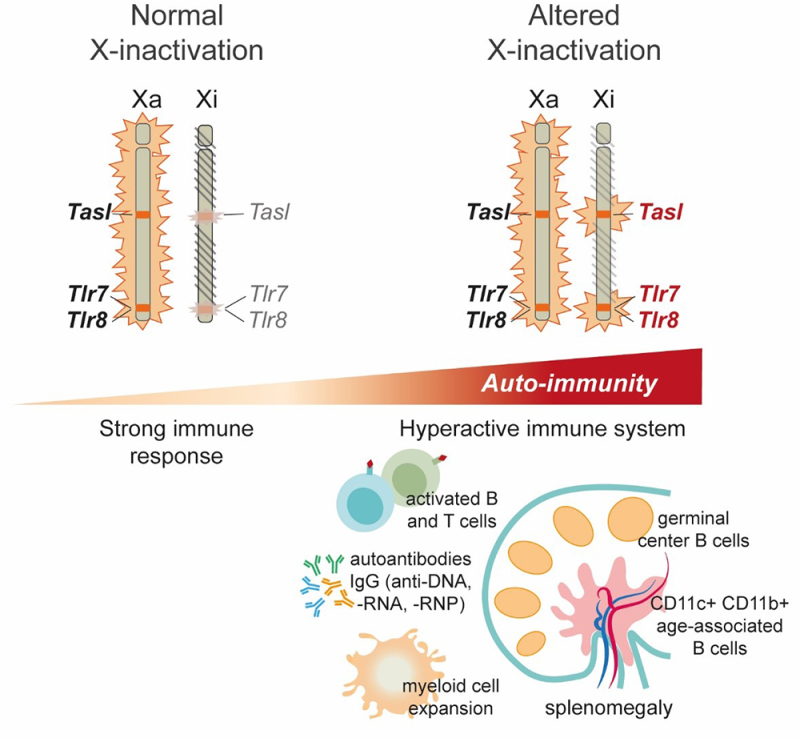Follow us on Google News (click on ☆)

In mammals, females' immunity is stronger than that of males. This enhanced immunity provides several advantages, including better resistance to different types of pathogens (viruses, bacteria, etc.) or better vaccination responses. However, it can become harmful when not properly regulated. The immune system then becomes overactive and attacks the body's cells, manifesting as autoimmune diseases.
Most of these diseases, such as lupus, predominantly affect women. Understanding the origin of this sex difference is therefore crucial for better treatment of these diseases.
Genes on the X chromosome play a role in immunity regulation
One hypothesis under investigation is the involvement of the X chromosome, which is particularly rich in genes related to immune functions. Abnormal expression of some of these genes, such as those in the Toll-like receptor (TLR) family, is responsible for the onset of autoimmune diseases.
It might be thought that the presence of two X chromosomes in females and only one in males is sufficient to explain this immunity difference. However, during the early stages of female mammalian development, one of the X chromosomes is repressed. This inactivation is maintained throughout adult life, balancing the expression of X genes between the sexes.
A link between X chromosome inactivation defects and autoimmune diseases
For this reason, scientists investigated the link between abnormal X chromosome inactivation and the onset of autoimmune symptoms. Using a line of mice with inactivation defects, they notably observed overexpression of TLR genes associated with inflammation signs typical of lupus. These genes normally partially escape repression from the rest of the X chromosome, contributing to females' better natural immunity. However, when X chromosome inactivation is disrupted, this escape is exacerbated, and immune system cells are activated even in the absence of pathogens.

Female mice have a better immune response than male mice, associated with low-level expression of TLR signaling pathway genes (Tlr7, Tlr8, Tasl) from the inactive X chromosome in addition to their expression from the active X (Xa). When X chromosome inactivation is altered, these genes are strongly reactivated, leading to spontaneous signs of inflammation and autoimmune manifestations.
© Huret et al.
These results suggest a direct link between autoimmune diseases and incomplete X chromosome inactivation. This discovery could lead to the development of new therapeutic strategies specifically targeting certain X chromosome genes or regulators of X chromosome inactivation. These strategies are feasible for treating lupus and other autoimmune diseases that preferentially affect women.
References:
Huret C., Ferrayé L., David A., Mohamed M., Valentin N., Charlotte F., Savignac M., Goodhardt M., Guéry JC., Rougeulle C. and Morey C. (2024)
Altered X-chromosome inactivation predisposes to autoimmunity. Science Advances, 10: eadn6537.
DOI: 10.1126/sciadv.adn6537